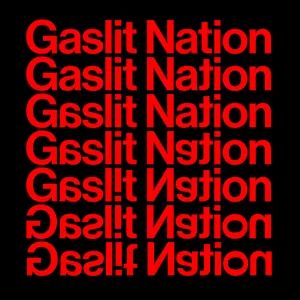Podcast Summary
Russia's Power Struggle: Prigozhin's Rebellion Tests Putin's Rule: Mercenary leader Evgeny Prigozhin's rebellion with thousands of fighters challenged Putin's control, questioning his military leadership and raising concerns about his vulnerability. The mutiny involved columns of armed forces advancing on major Russian cities, resulting in downed military helicopters and lingering questions about Putin's leadership.
The rebellion led by Evgeny Prigozhin and his Wagner paramilitary force in Russia last month was a significant challenge to Vladimir Putin's rule, marking the most dramatic threat since he came to power in 1999. Prigozhin, a mercenary leader with thousands of fighters, had publicly criticized the Russian military leadership and even questioned the rationale behind the war in Ukraine. On June 23rd, he launched a mutiny, sending columns of armed forces from Russian-controlled Eastern Ukraine into major Russian cities, including Rostov on Don and within 125 miles of Moscow. The event raised questions about Putin's control and vulnerability. Since then, it has been revealed that there were at least two separate columns, and Prigozhin's forces shot down several Russian military helicopters. This incident represents a significant shift in the power dynamics within Russia, leaving lingering questions about Putin's leadership and the future of the country.
Wagner Group's Rebellion in Russia: Averted Large-Scale Bloodshed Through Belarus Intervention: Belarus' authoritarian leader Alexander Lukashenko intervened in Russia's Wagner Group rebellion, averting large-scale bloodshed by negotiating a safe passage for the insurgents, despite Putin's reported consideration of a violent response.
The events surrounding the Wagner Group's rebellion in Russia in 2021 were a well-planned insurrection led by Yevgeny Prigozhin, resulting in the death of over ten Russian crew members. At the time, Putin was reportedly considering a violent response, but neighboring Belarus' authoritarian leader, Alexander Lukashenko, intervened and managed to negotiate a safe passage for Prigozhin and his forces into Belarus, ultimately averting large-scale bloodshed. Despite Lukashenko's questionable reliability, his involvement in the situation suggests that he played a crucial role in resolving the crisis. The reason Putin may have agreed to this deal, despite Prigozhin's threat to his power, remains unclear.
Putin's practical considerations led him to allow Wagner Group retreat: Putin prioritized practicality over other considerations, avoiding potential risks and uncontrollable consequences of a violent crackdown on Wagner Group in Belarus
Putin's practical considerations played a significant role in his decision to allow the Wagner Group, led by Yevgeny Prigozhin, to retreat into Belarus instead of using military force against them. Putin was wary of the potential risks and uncontrollable consequences of a violent crackdown, including the possibility of Russian soldiers refusing to follow orders and the potential for widespread damage and bloodshed. The US had intelligence about Prigozhin's plans before the rebellion began, but did not make it public to avoid being blamed for instigating the conflict. A senior Russian general, Sergei Surovikin, who was seen as an ally of Prigozhin, was also reportedly aware of the plans. Ultimately, Putin chose the less risky option, allowing Prigozhin and his troops to retreat, reflecting his typical approach to prioritize practicality over other considerations.
Wagner Group Rebellion: Putin's Unexpected Response: Putin thanked security forces for stopping the Wagner Group rebellion, signaling his firm grip on power, while the fate of the rebels remains uncertain.
During a rebellion led by a Russian Wagner Group commander named Surabikhin, who is an ally of Yevgeny Prigozhin, there have been speculations of possible collusion between the two. Surabikhin, who was seen in a hostage-like video pleading with the Wagner forces to stop their rebellion, has disappeared since, while Prigozhin has received immunity and fled to Belarus. Despite this, there have been reports of a camp for Wagner fighters coming together in Belarus, and the Russian authorities have offered them contracts to continue fighting. Putin's response to the rebellion was unexpected, as he held a huge ceremony in the Kremlin to thank security forces for their resolve and courage in stopping the rebellion. This move was seen as a telegraph to the Russian public and the world that Putin is still firmly in power. The fate of the other Wagner fighters remains uncertain, but there is no evidence of any crackdown on them. Overall, the rebellion was a significant event, and Putin's response suggests that he was looking for a way out with minimal risk and bloodshed.
Putin's response to rebellion in Russia: Putin admitted financial support for Wagner, broke pandemic protocols, but it's unclear if these actions quelled rebellion or regained full public support
The recent rebellion in Russia significantly rattled President Putin, leading him to make unprecedented moves to reassert his authority and popular legitimacy. Putin admitted to the Russian government's financial support for Wagner, a supposedly independent entity, totaling over $2 billion in the last year. He also ventured out into a crowd for the first time since the pandemic, defying his rigorous anti-coronavirus regimen. These actions were likely in response to the challenge Wagner's takeover of Rostov posed to Putin's power and authority. However, it remains uncertain if these efforts were successful in quelling the rebellion or regaining the public's full support. The lack of a significant outpouring of support from the public and elites during the rebellion raises questions about Putin's leadership.
Russia's fragile hold on power: Putin's control over Russia is uncertain, with potential contenders and instability threatening the regime. Despite his pitch to the West as a stabilizer, Putin's actions have caused chaos and uncertainty.
Putin's hold on power in Russia is fragile, as shown by the recent rebellion. His passive response during the initial hours of the rebellion revealed the underlying support of the Russian people for his regime. However, Putin quickly regained control and stabilized the situation in the short term. The long-term implications are uncertain, and there are signs that the system is fragile, including potential contenders for power like Yevgeniy Prigozhin, who has no democratic bona fides and is known for radical rhetoric. The unrest has also reminded us that whatever comes after Putin may not be democracy or pro-Western leadership. Putin's pitch to the West as a guarantor of stability in Russia should be viewed with caution, as he is not a guarantee of stability himself, having launched the largest land war in Europe since 1945. Ultimately, the future of Russia remains uncertain, and the recent rebellion serves as a reminder of the potential for instability and chaos.
Geopolitical tensions and debates over free speech and censorship: Reports of Wagner forces in Belarus contradicted by Lukashenko, while a US court ruling may limit Biden admin's ability to combat online misinformation, and Israeli military operation in West Bank results in Palestinian deaths, underscoring ongoing global conflicts and censorship debates.
There have been conflicting reports regarding the whereabouts of Yevgeniy Prigozhin and his Wagner forces. Belarusian President Lukashenko claimed they were not in Belarus and were instead in Eastern Ukraine. However, these claims could not be verified. Meanwhile, a federal court in Louisiana issued a ruling that could limit the Biden administration's ability to communicate with social media platforms about content online, potentially impacting efforts to combat misinformation. In the Middle East, the Israeli military finished a large-scale operation in the West Bank city of Jenin, resulting in the deaths of 12 Palestinians. These events highlight ongoing geopolitical tensions and debates over free speech and censorship.






